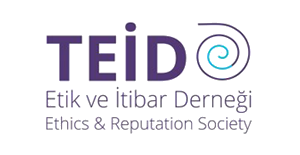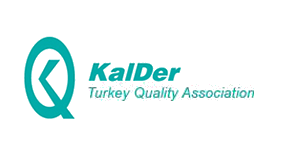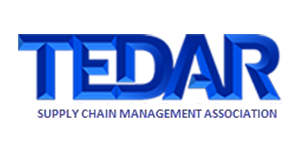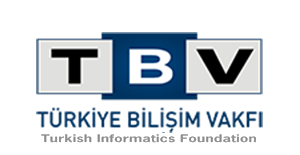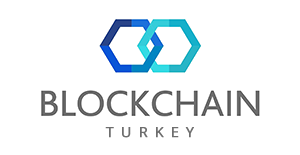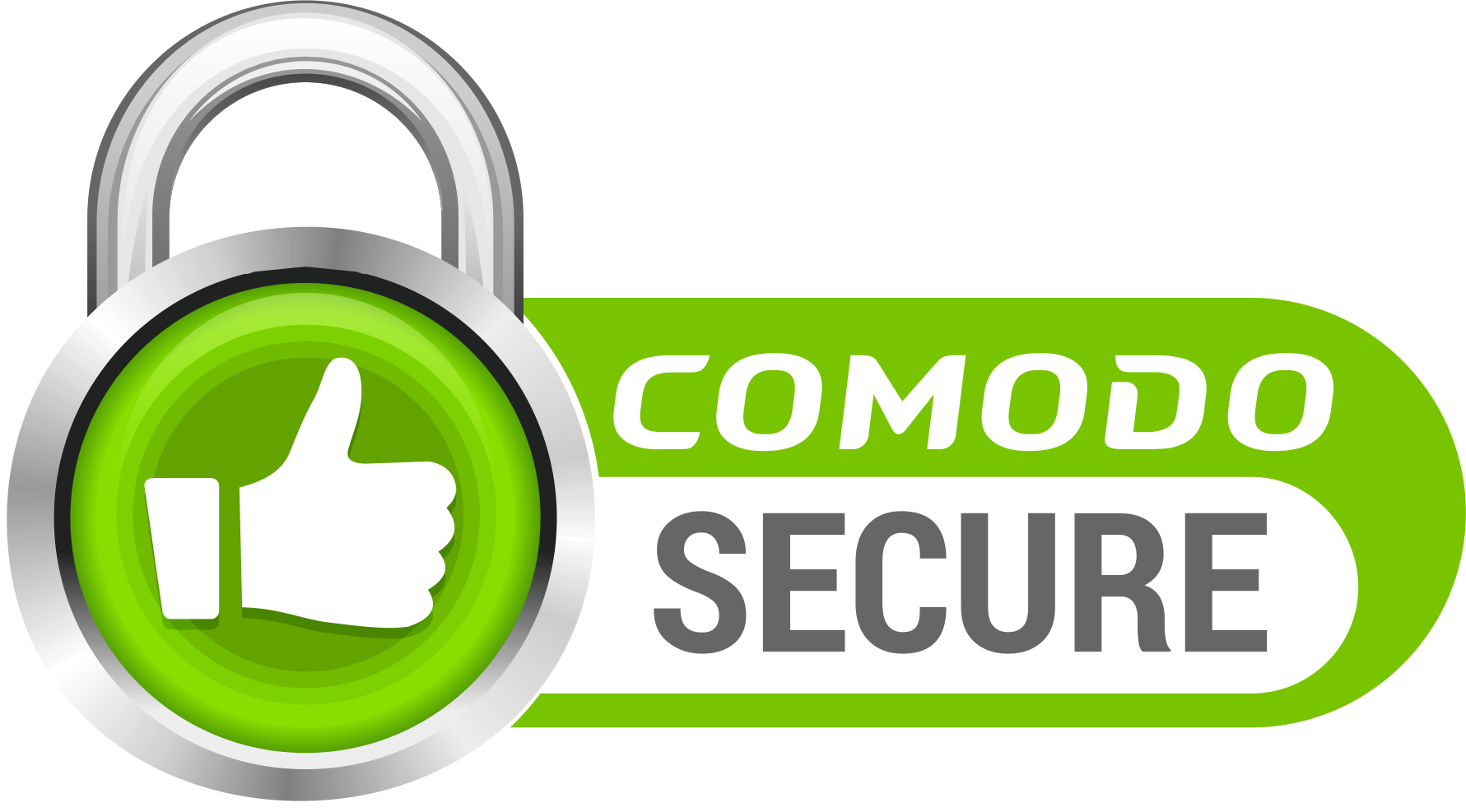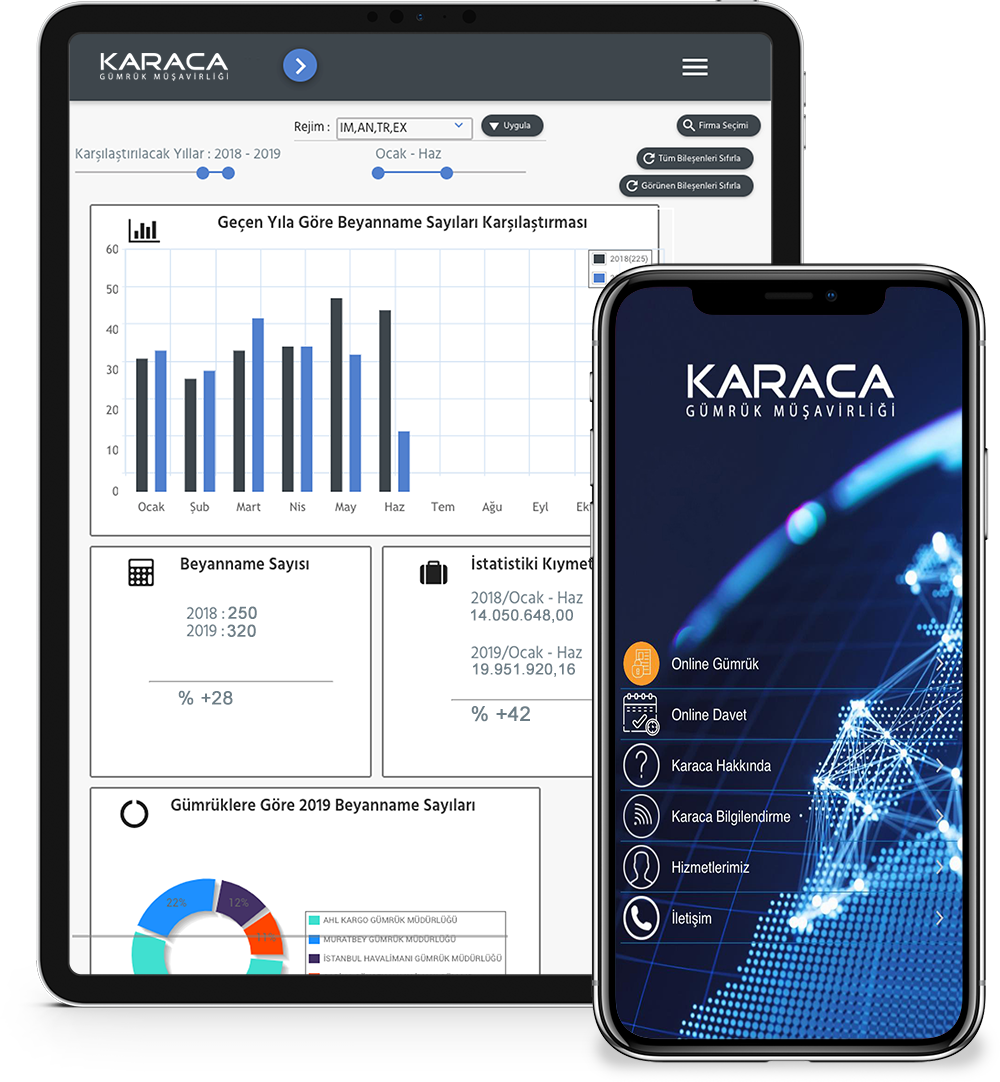Frequently Asked Questions
What kind of places are the customs? How can the concept of Foreign Trade be defined in the simplest form?
Customs are the locations where the international trade transactions are realized and controlled. In the classical meaning, the customs serve the goal of creating revenue for the state over the taxes taken from the good purchase and sales, however today these functions are varied. Today customs perform many functions like protection of the local manufacturers, provision of development, application of foreign policy of the state, protection of the health of the citizens and the environment, protection of cultural heritage and the intellectual and industrial rights, fighting against the unauthorized good entry to the country.
Foreign trade, whereas, in its simplest form, is a concept covering the export meaning good sales from one country to another, import meaning good purchase to a country from another and all the international service purchase and sales.
What do customs consultancy firms do?
The customs consultancy firms playing an important role in fast and accurate import/export and/or transfer of wares subject to international trade from one country to another, are the institutions consisting of licensed customs consultants authorized by the state, forming a very important part of the transport/logistics and foreign trade. The most important duty of these institutions is to represent in the best way their customers whose responsibility they undertake to conduct the customs transactions at the customs offices and linked institutions and associations.
Preparation of the documents necessary for accurate and fast realization of the import, export, transit and other customs transactions of the goods, submission of these to customs administrations and linked institutions and associations, placing the wares under tariff in light of the given information and the information acquired during the inspection, determining, evaluating the requirements, follow up of customs works and transactions, payment of taxes, completion of customs transactions, collection of wares from the customs are among the duties of the institutions.
In summary, the customs consultancy firms are the biggest supporters, solution partners and business partners as if insurances that represent the foreign trade firms in the best way at the customs administrations and linked institutions and associations, sharing their responsibilities regarding the taxes collected in deficit and given monetary fines.
What is direct representation?
Representation can be direct or indirect. Representative acts in the name and account for someone else in direct representation, he/she is within the organization of the legal entity as its employee authorized to represent it. The legal consequences of the transactions the representation conducted belong to the represented entity. For the direct representation to be possible, the representative should have the authority to represent, and should declare and present to the customs administrations the representation authority certificate indicating that he/she has the direct representation and she/he is acting in the name of the represented entity. The representative signs with a certificate of representation and represent directly the owners and the board of directors of the firm, each signature he/she gives binds the company directly. In direct representation, all the consequences of the transaction is between the third parties and the represented entity.
What is indirect representation?
The indirect representation is the representative acting in his/her behalf but for the account of the represented entity and to conduct transactions with the third parties. Here the representative is not within the organization of the represented party but is a person authorized via a power of attorney. In the case of indirect representation, the representative acts in his/her name but for the account of someone else, in other words, when the representative conducts a legal transaction due to an authorization granted to him/her, he/she conducts it both in his/her own name and for the account of the represented party. The transactions at the customs are conducted by the customs consultants under the title of indirect representatives. In the Customs Law article 229 paragraph two, provided that the personal penal responsibilities of the related customs consultant are reserved, the customs consultant conducting the transaction and the legal entity where the customs consultant works are also jointly responsible regarding the taxes collected by the customs administration and the monetary fines given. In the Customs Law article 181 paragraph 1, the obligator in customs liability in import is the owner of the declaration. In the case of indirect representation, the person for whose account the customs declaration is made is also liable.
Who is the Customs Consultant?
A customs consultant is a professional with official certificate who meets the conditions like the education and internship, not being sentenced of certain crimes indicated in the Customs Law and being successful at the occupational competence examination, who has the right and privilege to represent the real and legal entities with the special authorization the law has granted, based on a legal power of attorney relationship, at the customs administrations via indirect representation, who acts in his/her own name and in the account of the person he/she represents.
What are the duties and the responsibilities of the customs consultants?
Custom consultants act as a bridge between the real and legal entities engaged in foreign trade and the customs administration and follow up and finalize the customs transaction in an accurate and reliable manner as an indirect representative with the occupational knowledge and expertise. In this regard, besides aiding the ware owners, in favor of their knowledge and experience, they also facilitate the works of the customs administrations. Members of the profession, while performing their jobs, have a responsibility to conduct the bureaucratic process flawless as required by the entire customs legislation. They protect the rights and benefits of the persons and institutions they represent and direct them as to protect them from all kinds of material and nonmaterial damages.
What are the financial and penal responsibilities of the customs consultant?
In accordance with the Customs Law no. 4458 article 229, in case the customs consultancy is a legal entity, in cases where the owners of the signature on the customs declaration or other documents considered as declarations know or should know the condition causing the tax loss, these are jointly accountable against the customs administration together with the legal entity they are linked to. In these case, the legal entity is also jointly responsible together with the person conducting the transaction regarding the taxes collected by and monetary fines given by the customs administration. Also, in the Law article 181 paragraph 2, it is indicated that in indirect representation the liability of the representative is limited by what the representative knows or should in general know due to the occupation that the data used on the declaration are inaccurate.
Thus, both the customs consultant and the customs consultancy company have financial responsibilities against the customs administration.
In accordance with the Law of Misdemeanor, the monetary fines indicated in the Customs Law can also be applied to the customs consultant and the customs consultancy company.
Are disciplinary actions taken against the customs consultants?
Against the members of the profession who act in contradiction to the dignity and honor of the customs consultancy or customs deputy consultancy occupation, who do not conduct their duties or conduct their duties in default or behave as to disrupt the trust required by the duty, in order for the customs consultancy services to be conducted as required, disciplinary actions like warning, reprobation, temporary suspension of occupational activities and dismissal from the occupation depending on the quality and the severity of the situation are applied.
What are the reason for the persons to prefer indirect representation rather than the direct representation?
The reasons for the foreign trade firms to prefer indirect representation (representation by Customs Consultancy Firms/Customs Consultants) rather than direct representation (representation by persons working within the legal entity and are authorized to represent the legal entity and/or who have the title of employee of the legal entity) are to benefit from the knowledge and experience, mobility, reputation, reliability of an expert customs consultancy firm, utilize the opportunities created by the solvency and the seriousness incurred due to the joined responsibility (Customs Consultancy firms being held responsible together with the companies they represent regarding the taxes paid in deficit related to the transactions they conducted).
In summary, the customs consultancy firms are the biggest supporters, solution partners and business partners as if insurances that represent the foreign trade firms in the best way at the customs administrations and linked institutions and associations, sharing their responsibilities regarding the taxes collected in deficit and given monetary fines.
Is there a minimum fee tariff to be applied by the customs consultancy firms for the works and transaction they shall conduct?
In accordance with the Customs Law no. 4458 Temporary article 6 paragraph 10, the Minimum Fee Tariff showing the minimum fees the customs consultants shall collect against the works and transactions they shall conduct and determined annually is implemented by the customs consultants associations after the approval of the Ministry of Commerce if it considered appropriate.
Due to the liberty of contract it is possible to agree on a higher fee/rate considering the properties of the ware subject to declaration, the location of the warehouse subject to contract and similar elements. However, no work can be accepted below the Customs Consultancy Minimum Fee Tariff.
Does taking fees below the minimum fee tariff, constitute a penalty, if so for whom it does?
In accordance with the Communiqué on the Customs Brokerage and the Authorized Customs Consultancy Minimum Wage Tariff published by the Ministry of Commerce, the customs consultants who provide customs consultancy services under the Minimum Wage Tariff and, without prejudice to the disciplinary penalties, shall inform the the irregularity penalty shall be applied in accordance with the first paragraph of Article 241 of the Customs Law, separately to all persons responsible for fulfilling its obligation
What is the subsequent inspection, who does it, why does it and in what ways is it done?
In accordance with Article 73 of the Customs Law No. 4458, in order to determine the accuracy of the information declared to the customs administration after the delivery of the goods, it is the inspection of the import or export transactions or the commercial documents and data related to the subsequent commercial transactions by the Customs Inspectors in the places where the parties are obliged.
Subsequent control shall be carried out to determine whether the persons (real and legal) meet their obligations under the customs legislation and other relevant legislation. A company which is subject to a later inspection shall be inspected and controlled not only in terms of customs duties, but also in terms of origin transactions, declarations made by tariff and value, any permits, accounting records, origin documents, production processes and compliance with the conditions stipulated by the regimes.
How should foreign trade firms be prepared for final inspection done by Customs inspection units?
As a result of the errors and deficiencies to be revealed in the controls to be performed by the auditors, it is very important for foreign trade companies to carry out preparatory work with an experienced organization specialized in post-control supervision services, which prepares the companies for subsequent inspection, by conducting inspections and inspections beforehand.
Karaca Customs Consultancy, who successfully represents the national and international valuation institutions related to customs and foreign trade in customs offices and other related public institutions and organizations, customs and foreign trade transactions before and after the control of the issues to be observed and complied with the issues offered to customers in the industry, with a high level of experience and know-how.
What should be cared for while selecting customs clearance firm?
The most important factors that foreign trade organizations should pay attention to when choosing Customs Clearance Services and Customs Clearance Company are listed below.
- Experienced, Expert, Professionals with Proof of Authorization, Accurate Orientation Responsibility, Ethical Principles and Ethical Values, A Reliable Team,
- A Business Model and System in which Business Information can be maintained without being dependent on individuals, Corporate Information is Produced, Developed and Constructed into Corporate Memory,
- Boutique Service Concept,
- Technological Infrastructure,
- Fast Process Finishing and Problem Solving Ability,
- Ability to serve in different locations,
- Providing Service to Large Scale Organizations,
- Accounting and Finance Department, with Accurate Timing,
- Having an Internal Audit Department Performing Preliminary Control Audits for Post-Control,
- Business Owners Care and Protection of Legal Rights.
It should be kept in mind that a wrong procedure by a wrong Customs Brokerage firm to be selected will easily bear the risk of being evaluated within the scope of customs smuggling and penalties and that foreign trade companies will be confronted with compensating costs, penalties, time and prestige losses.
